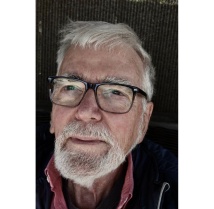W. Ford Doolittle
Professor Emeritus

Email: w.ford.doolittle@dal.ca
Phone: 902-494-3569
Mailing Address:
Sir Charles Tupper Medical Building
PO Box 15000
Halifax, Nova Scotia, Canada B3H 4R2
Education
- BA, Harvard College
- PhD, Stanford University
- BFA, NSCAD University
- FRS(C)
- Member, US National Academy of Sciences
- FRS
Academic Positions
- Department member since 1971
- Cross-appointed with Department of Philosophy in 2020
Research Topics
Genomics, Molecular Phylogeny, Gene Transfer
Research
I examine prevailing concepts in genomics, molecular biology and microbial ecology, most often as these reflect understandings of evolution by natural selection. Particular concerns are multilevel selection theory, selection for differential persistence (instead of differential reproduction), holobiosis and selection on cycles and interactions, microbiology and the Modern Synthesis, origin of eukaryotes and cellular complexity, lateral gene transfer and the Tree of Life, and the meaning of “function”.
Current Lab Members
| Wanda Danilchuk |
Research Assistant |
|---|
Publications, since 2020
- Darwinizing Gaia: Natural Selection and Multispecies Community Evolution. (2024) MIT Press
- Papale, F. and Doolittle, W.F. (2024). Towards a more general theory of evolution by natural selection: a manifesto. Philosophy, Theory and Practice in Biology, in press.
- Neto, C. and Doolittle, W.F. (2023). A chemostat model for evolution by persistence: Clade selection and its explanatory autonomy. Philosophy of Science, 90:21-38. https://doi.org/10.1017/psa.2022.11
- Inkpen, S.A. and Doolittle. W.F. (2022). Can Microbial Communities Regenerate? Book, University of Chicago Press.
- Lean, C.H., Doolittle, W.F. and Bielawski. J.P. (2022). Community-level evolutionary processes: Linking community genetics with replicator-interactor theory. Proceedings of The National Academy of Sciences, USA, 119:e2202538119. https://doi.org/10.1073/pnas.2202538119
- Doolittle, W.F. (2022). All about levels: Transposable elements as selfish DNAs and drivers of evolution. Biology and Philosophy, 37:24-44. https://doi.org/10.1007/s10539-022-09852-3
- Inkpen, S.A. and Doolittle, W.F. (2021). Adaptive regeneration across scales: Replicators and interactors from limbs to forests. Philosophy, Theory and Practice in Biology, 13:1. https://doi.org/10.3998/ptpbio.16039257.0013.001
- Novick, A. and Doolittle, W.F. (2021). ’Species’ without species. Studies in History and Philosophy of Science A, 87:72-80. https://doi.org/10.1016/j.shpsa.2021.03.006
- Brunet, T.D.P., Doolittle, W.F. and Bielawski, J.P. (2021). The role of purifying selection in the origin and maintenance of complex function. Studies in History and Philosophy of Science A, 87:125-135. https://doi.org/10.1016/j.shpsa.2021.03.005
- Doolittle, W.F. (2020). Is the Earth an Organism? Aeon. Published online 3 December.
- Doolittle, W.F. (2020). Could this pandemic usher in evolution’s next major transition? Current Biology, 30:R846-R848. https://doi.org/10.1016/j.cub.2020.06.079
- Linquist, S., Doolittle, W.F. and Palazzo, A.F. (2020). Getting clear about the F-word in genomics. PloS Genetics, 16:e1008702. https://doi.org/10.1371/journal.pgen.1008702
- Doolittle, W.F. (2020). Evolution: Two domains of life or three? Current Biology, 30: R177-R179. https://doi.org/10.1016/j.cub.2020.01.010
- Novick, A. and Doolittle, W.F. (2020). Horizontal persistence and the complexity hypothesis. Biology & Philosophy, 35:2. https://doi.org/10.1007/s10539-019-9727-6
